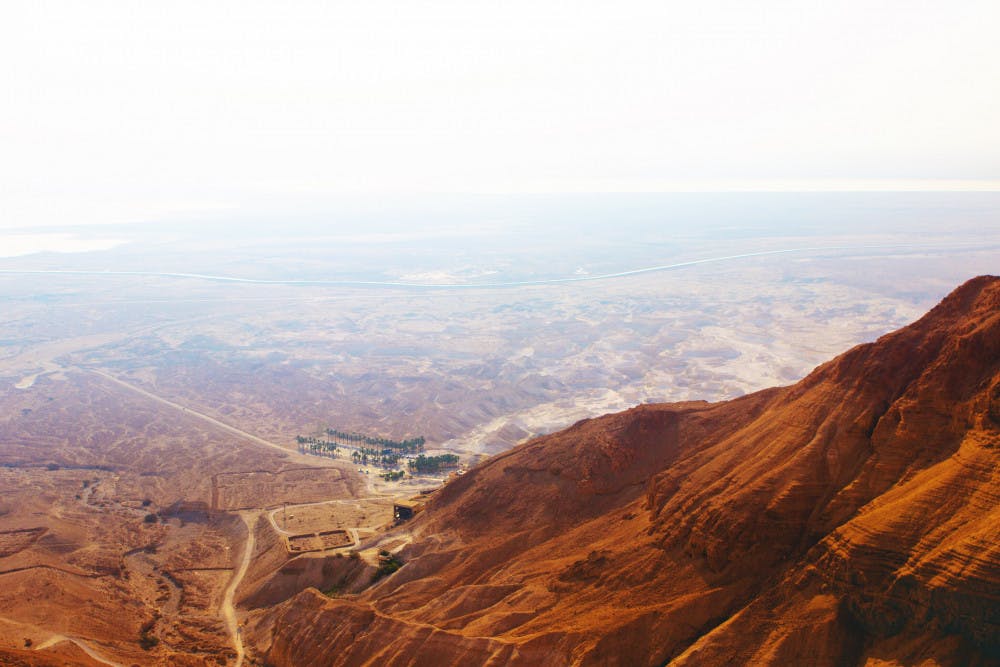By Thomas Infante
Arts & Entertainment Editor
Students and faculty welcomed the U.S. ambassador to Israel from 2001 to 2005 to the Library Auditorium on Friday, March 4, in a presentation about the complexity of the Israeli-Palestinian conflict.
Daniel Kurtzer outlined the possible routes that Israel and Palestine could pursue to bring about and maintain peace. He explained the diplomatic conflicts that would arise for each possible solution.
Kurtzer began working as a diplomat with the U.S. State Department in 1981, working primarily with regions in the Middle East. He retired in 2006 and now works as a professor of middle eastern studies at Princeton University.

Daniel Kurtzer outlined the possible routes that Israel and Palestine could pursue to bring about and maintain peace (envato elements).
The Israeli-Palestinian conflict is undoubtedly a complicated one due to the cultural and religious roots that are embedded in the violence.
“It goes deeper than the boundary,” Kurtzer said. “The conflict affects the self-image of each group.”
Israel declared its independence in 1948, after the former British territory of Palestine was divided up into an independent Palestine and Israel. Since the Six-Day War between the two states in 1967, Israel has annexed and settled on previously-held Palestinian land, including the West Bank and Gaza Strip. Although the exact borders have changed over time, Israel still controls the majority of the region, to the chagrin of the Palestinians.
“The Palestinians are trying to negotiate their own independence from Israel, while at the same time negotiating their own recognition as a state,” Kurtzer said. “I think of the situation as a multi-dimensional chessboard, but it’s not rocket science.”
Kurtzer, with the help of extensive flowcharts, detailed the different paths that Israel and Palestine could choose in the quest for long-standing peace.
“Most Israelis want democracy in the region,” Kurtzer said. “However, it is impossible to have a democratic occupation — it’s a conundrum.”
Even territories like the Gaza Strip that are technically under Palestinian control still rely on Israel for food and water, among other public provisions.
“Some people think of it like Apartheid,” Kurtzer said. “On the other hand, some say that the interest of preserving the holy land outweighs the need for democracy.”
According to Kurtzer, the majority of the region’s population favors the idea of a two-state solution, in which Israel and Palestine can coexist as independent states in the region. However, Israel still has not relinquished territory that used to belong to Palestine and continues to occupy areas like the West Bank, which Palestine holds claim to.
“Israel would work harder at brokering peace if other nations, including the U.S., actually applied political pressure,” Kurtzer said. “People pay attention when our politicians unify and provide more than just words to help a situation.”
According to Kurtzer, the last election for prime minister of Israel was almost locked at in a 50-50 split, with Benjamin Netanyahu barely winning reelection. Although Netanyahu said he favors a peaceful two-state solution. He has made no territorial concessions to the Palestinians and continues to support Israeli settlement building on Palestinian land.
In an interview in 2015, he called the establishment of a Palestinian state “yielding territory for radical Islamic terrorist attacks against Israel.”
“Even Israelis are split on how to handle the conflict,” Kurtzer said. “Perceptions of who the enemy is in the Middle East are changing, partially because politicians don’t have a clear endgame.”
Additionally, Palestinians are split on how to handle the loss of so much of their land. According to Kurtzer, Palestinians are slowly becoming more industrious and gaining more autonomy as they wait for the situation to improve. True brokerage of peace could only realistically occur with the help of a large nation like the U.S.
“There are some Palestinians that want a declaration of independence and democratic elections,” Kurtzer said. “There is also resistance in the form of ‘intifada’ — violent uprisings against Israel.”
Despite complaints from the United Nations and European Union, Israel has not conceded any territory. Violence continues to break out, and Kurtzer wonders if President Donald Trump will contribute anything more than strong words.
“Diplomacy requires more than just getting around a table and talking about the problems,” Kurtzer said. “Inflammatory remarks towards Palestine will just incite violence towards Israel. What happens on the ground impacts the government’s ability to negotiate.”







